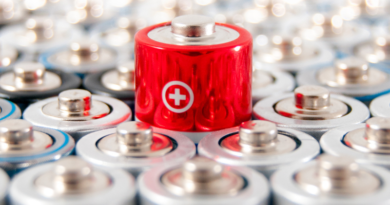Guide to Homologation of Electric 2W and 3W in India
Homologation refers to the approvals required for the vehicles prior to marketing and sales. This is done to ensure the vehicles meet the official standards set by concerned regulatory bodies. The standards aim to improve vehicle safety, keep their environmental impact in check and assess the quality of parts as well as the production process. The process of testing and certification for conformance to technical standards is known as type approval.
We will briefly discuss the regulatory framework in India along with agencies involved in Homologation process, and who should start-ups ideally go to get their EVs approved.
Regulatory Framework in India
The homologation process for any automotive vehicle including Electric Vehicles consists of several steps: Component approval (e.g. lamps, mirrors, tires), Component fitting to the vehicle (e.g. electric/electronic sub-assemblies, car audio systems), System approvals (e.g. for breaking mechanism) and Whole vehicle type approval (WVTA) / Vehicle certification test.
For each step, the concerned authority will issue a system approval according to applicable CMVR (Centre Motor Vehicle Rules). The approvals are based on test reports prepared by an officially recognized testing organization. Once all approvals are collected, the testing organization issues the report for the approval as a basis for the homologation certificate.
Also Read: Road Safety and Electric Vehicles
Homologation Agencies Architecture in India
National Automotive Testing and R&D Infrastructure Project (NATRiP) is a Government-funded project that aims at creating core global competencies in the automotive sector in India. Under the project, the following new centres have been set up:
1. International Centre for Automotive Technology (iCAT) at Manesar (Haryana)
2. Global Automotive Research Centre (GARC) at Oragadam near Chennai (Tamil Nadu)
3. National Automotive Test Tracks (NATRAX) at Pithampur near Indore (Madhya Pradesh)
4. National Institute Of Automotive Inspection, Maintenance & Training (NIAIMT) at Silchar (Assam)
The two existing facilities ‘Automotive Research Association of India (ARAI-Pune) and Vehicle Research & Development Establishment (VRDE – Ahmednagar)’ have been upgraded with new technologies.
Popular Homologation Agencies in India
Most popular go-to agencies for Electric 2 wheeler and 3 wheeler Homologation agencies are ARAI (Pune) and ICAT (Manesar).
Below are the names of standards and General Stauatory Rules for EVs:

Titles for Standards related to Battery Operated Vehicles and EV Charging Systems
| Standards | Title Compiled by EVreporter.com |
| AIS -038 | Battery Operated Vehicles – Requirements for Construction and Functional Safety |
| AIS-038 (Rev.1):2015 Amd. No. 1 | Electric Power Train Vehicles- Construction and Functional Safety Requirements |
| AIS-038 (Rev 2): (Draft) | PART I: REQUIREMENTS OF A VEHICLE WITH REGARD TO SPECIFIC REQUIREMENTS FOR THE ELECTRIC POWER TRAIN | M and N Category PART II: REQUIREMENTS OF A RECHARGEABLE ELECTRICAL ENERGY STORAGE SYSTEM (REESS) WITH REGARD TO ITS SAFETY | M and N Category |
| AIS-156 (Draft) | SPECIFIC REQUIREMENTS FOR L CATEGORY ELECTRIC POWER TRAIN VEHICLES |
| AIS-039 | Battery Operated Vehicles – Measurement of Electrical Energy Consumption |
| AIS-039 (Rev.1) & Corri. 1 | Electric Power Train Vehicles– Measurement of Electrical Energy Consumption |
| AIS-040 | Battery Operated Vehicles – Method of Measuring the Range |
| AIS-040 (Rev.1):2015 Amd. No. 1 | Electric Power Train Vehicles – Method of Measuring the Range |
| AIS-041 | Battery Operated Vehicles – Measurement of Net Power and the Maximum 30 Minute Power and speed |
| AIS-041 (Rev.1):2015 | Electric Power Train Vehicles Measurement of Net Power and The Maximum 30 Minute Power |
| AIS-048 Amd. No. 1 and 2 | Battery Operated Vehicles – Safety Requirements of Traction Batteries |
| AIS-049 Amd. No. 1& 2 | CMVR Type Approval for Battery Operated Vehicles. |
| AIS-049(Rev.1) | Electric Power Train Vehicles – CMVR Type Approval for Electric Power Train Vehicles |
| AIS-102 (Part 1) Amd. No. 1 Amd. No. 2 | CMVR Type Approval for Hybrid Electric Vehicles |
| AIS-102 (Part 2) | CMVR Type Approval for Hybrid Electric Vehicles of M and N Category with GVW > 3500 kg |
| AIS-123 (Part 1) Amd. No. 1 and 2 | CMVR Type Approval of Vehicles Retrofitted with Hybrid Electric System |
| AIS-123(Part 2) | CMVR Type Approval of Hybrid Electric System Intended for Retro fitment on In-use Vehicles of M and N Category having GVW 3500 kg |
| AIS-123 (Part 3) Amd. No. 1 Amd. No. 2 | CMVR Type Approval of Electric Propulsion Kit Intended for Conversion of Vehicles for Pure Electric Operation |
| AIS-131 | Type Approval Procedure for Electric and Hybrid Electric Vehicles introduced in market for Pilot / Demonstration Projects intended for Government Scheme |
| AIS-137(Part 5) | Test Method, Testing Equipment and Related Procedures for Electric Drive Trains intended for the Propulsion of Motor Vehicles of Categories L, M and N with regard to the Measurement of Net Power and the Maximum 30 Minutes Power of Electric Drive Trains |
| AIS-138 (Part 1) | Electric Vehicle Conductive AC Charging System |
| AIS-138 (Part 2) | Electric vehicle conductive DC charging system |
You can also download the required Standard Documents from below link on ARAI website – https://araiindia.com/downloads
Other FAQs on Homologation of EV in India
I am an EV manufacturer in India. What is the procedure for homologation of electric vehicles?
I want to import an electric vehicle in India for individual use. Does it need ARAI’s approval?
Electric two-wheelers, having maximum power less than 250 W and speed less than 25 kmph are exempt from type approval requirements as mentioned in GSR 291(E). You should examine if your vehicle falls under this limit. If yes, you should approach ARAI for necessary exemption.
Otherwise, the vehicle will be treated as a motor vehicle and hence would need to be type-approved. Type approval is done model-wise.
I want to import electric vehicles in India for trading purpose. Does it need ARAI’s approval? What is the procedure?
As stated above, the rules are applicable to imported vehicles as well. Before importing the vehicles, the importer should study the provisions of import policy of the Government of India as well as the requirements of homologation given under (CMVR) Central Motor Vehicles Rules.
What are the charges for testing and approval of the electric vehicle? How much time is required for testing and approval of an electric vehicle?
Testing requirements depend on the vehicle category and its technical specifications. You need to apply for approval by providing detailed vehicle specifications in the requisite format provided by AIS-007 (Rev.5) – The additional technical information to be submitted for the Battery Operated Vehicles is given in Table-13 of the document, that can be downloaded from https://araiindia.com/downloads.
On receipt of the application, ARAI works out the testing charges. Usually, for every new vehicle model, 2-3 months time is required for compliance testing and certification.
Do one need a license for driving an electric bicycle?
Electric two-wheelers which have power less than 250 W and speed less than 25 kmph are not categorized as motor vehicles. Hence the transport rules are not applicable for such exempt category vehicles and a license is not required.
Author’s Recommendation
If you are a start-up with an extremely limited budget, I would advise you to do only the pilot vehicle which you can easily manufacture from the components available in the market (broadly Chinese). Although, for the long term it is important to arrange for a consistent source of material and equipment.
Depending upon whether you are manufacturing a two-wheeler or three-wheeler, primary component requirements are mentioned below and my recommendations on how a start-up can source them economically:
1. Mechanical structure or Body – Can be sourced readily from existing brands or you can do mix-manufacturing utilising spares of existing 2W or 3W
2. Motor – Easily available from 250 W to 900 W in axle wheel or Chain sprocket wheel drive
3. Standard Speed controller units – Largely Chinese but some Indian versions are available as well
4. Electrical harness which connects the motor controller with handle or foot accelerator, and battery
5. Speedometer, Battery charging units
6. Lead-acid or LFP battery pack – You would also require BMS if using LFP batteries
Cost of Homologation
For up to 2 pilot vehicles, start-ups can look at the following figures for an estimate of the cost incurred for homologation:
1. Low-Speed Two-wheelers: 3.5 to 4.5 Lakh INR | Ref GSR 291(E) for General Statutory Rules on low-speed 2Ws
2. E-rickshaws (top speed capped at 25 km/h): 7.5 Lakhs INR | Ref GSR 709(E) for General Statutory Rules on e-rickshaws and e-carts
3. Hi-speed regular two-wheeler: 12 Lakh INR
4. Regular 3W: 26 Lakh INR
All costs are approximate (and subject to change as per the vehicle make and sourcing).
About the Author
Sujoy Chourasia is a Delhi based Solopreneur and Consultant who helps start-ups working in clean technology space. Sujoy is available for consultation regarding Homologation execution at ICAT – Manesar and can be reached at chourasia.sujoy@gmail.com.
Subscribe today for free and stay on top of latest developments in EV domain.






Yes
ARAI approved Three Wheelers E Kart, loader, Rickshaw,Auto are not so far approved by Tamilnadu state Transport Authority why ?
Dear sir,
i want to know about L1 & L2 categories vehicles,
component level test will applicable or not AT L1 category vehicles, Please reply fast
Yes Component testing is applicable for both the categories L1, L2.
where can we find the Drive train ie; Motor test specifications for EV. temperature, durability , EMC requirements
https://hmr.araiindia.com/Control/AIS/45201991535AMAIS_137_Part_5_F.pdf
Kindly get in touch with us at admin@harithatechlogix.com for more information.
is three wheeler Electric scooter(250 watt & 25 kmph) only for handicapped ?
I would like to know that Blaupunkt New York 750 compatible for hyundai creta 2020, please guide me
Sir I want to Start a Assembly unit for E rickshaw in my own brand name by purchasing component spares and body from existing sellers in market .So does still i need approval from ICAT or ARAI
I want to start E ricksaw and E scooter manufacturing as startup.
What is the process of Icat approval and from which step I start please guide me step by step.